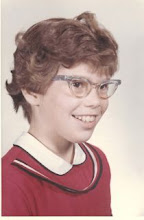I am tickled pink to introduce you to my darlin' friend, Elizabeth O. Dulemba, illustrator extraordinaire and now first-time novelist. I met e, as I call her, at the LA SCBWI conference several years ago and we have palled around ever since. Her novel, A Bird on Water Street, is garnering lovely attention; now please direct your attention to this post! And if you are the first commenter, you will win an autographed copy of Bird for your very own sweet self!
Research Interviews -
Getting the Good Stuff
By Elizabeth O. Dulemba
In researching A Bird on Water Street, my debut historical fiction mid-grade, I interviewed tons of people
over the course of a decade, from miners to musicians, union leaders to locals,
searching for knowledge to tell my story with authority, and for the nuances to
make my story feel real.
A Bird on Water Street is about a
boy growing up in a southern Appalachian town environmentally devastated by a
century of poor copper-mining practices. Jack’s dad expects him to follow in
the family trade, but Jack just wants his dad safe and the land returned to its
pre-mining glory with nature—and trees. After Jack's uncle is killed
in a mining accident and the Company implements a massive layoff, the miners go
on strike. It seems Jack's wish is coming true, nature is returning. But the
cost may be the ruin of his home and everything he loves.
My story is based in an all-too
real, though little known, locale called the Copper Basin in the tri-state area
of Georgia, North Carolina, and Tennessee. The story takes place around actual
historical events—layoffs began in 1986. I remember passing the men on strike
when I went camping in the surrounding parks in the early 1990s. (Honk to support a
miner!) So, it was
ironic (or fated) when I moved to the region in 2001. By then, the land had
mostly been restored, although the history was everywhere and demanded that I
write about it. To get my head around the enormous topic, I did tons of
research and interviews—lots of interviews.
After the first few interviews, I
noticed some patterns that might help others doing research like this for their
own historical projects.
I quickly learned that face-to-face
is always better. When interviewing someone in person I’d notice the
hesitations, the glances, the gazes that suggested that I needed to dig a
little deeper.
I
asked questions that triggered memories, like what was your favorite food? How
did the light feel? (Was it low, high, warm, cold?) What did it sound like?
(Was there a train, children, birds?) These are sensation memories. In fact,
our sense of smell is our strongest memory-keeper--it can trigger untapped
reservoirs. So I made sure to ask how things smelled.
I always had a list of questions
ready on a small pad and wrote constantly while folks talked so they could get
used to the sensation. But I remained willing to veer off course. A quick smile
or sigh could lead to a flash visual or story that might have seemed off-topic,
but often-times helped me round out a scene or gave me threads I hadn’t thought
of before. In fact, almost all the stories in A Bird on Water Street carry a
grain of truth in them.
I remained open to new ideas. For
instance, I was surprised to learn that some folks didn’t like the return of
nature. They missed their Red Hills and hated the allergies and bugs that came
with the explosion of green and growing things. It added shades of grey to my
story, which I love. For seldom in life are things strictly black or white.
Finally, I kept my pad and pen handy
during those last five minutes especially. For some reason, after sitting with
somebody for an hour, that’s when the dam of time would break and the memories
would flood back in. Suddenly they weren’t with me anymore, they were back there, remembering something they
perhaps hadn’t thought of in years.
And that is when I got scribbling,
because that
was when I’d get
the good stuff!
Elizabeth
O. Dulemba is Illustrator Coordinator for the SCBWI Southern Breeze region,
Visiting Associate Professor in the MFA in Writing and Illustrating program at
Hollins University, and an award-winning children’s book author/illustrator
with two dozen titles to her credit. A BIRD ON WATER STREET is her first novel
and has already won three awards: it is a Southern Independent Booksellers
Alliance (SIBA) Okra Pick; a Gold Mom’s Choice Award Winner; and is THE 2014
National Book Festival Featured Title for the state of Georgia in Washington,
D.C. Learn more at dulemba.com and ABirdOnWaterStreet.com.









Hmmm. I tried to leave a comment and it disappeared. I will try again. This is a book that has been on my radar for awhile, so I would love to have a copy.I even mentioned it on my blog a couple weeks ago. It sounds terrific.
ReplyDeleteI am super excited to check this book out! Thanks for sharing!
ReplyDeleteThanks so much for sharing the love Rosi! I'll get your winning copy off to you asap. Be sure to share to whom you'd like your book dedicated! Ellen - I hope you enjoy A BIRD ON WATER STREET! Happy Reading! :) e
ReplyDeleteLoved your reflections on the interview process, Elizabeth. Thanks for sharing. I look forward to reading A BIRD ON WATER STREET.
ReplyDeleteThank YOU Dianne! I hope you enjoy reading!! :) e
ReplyDelete